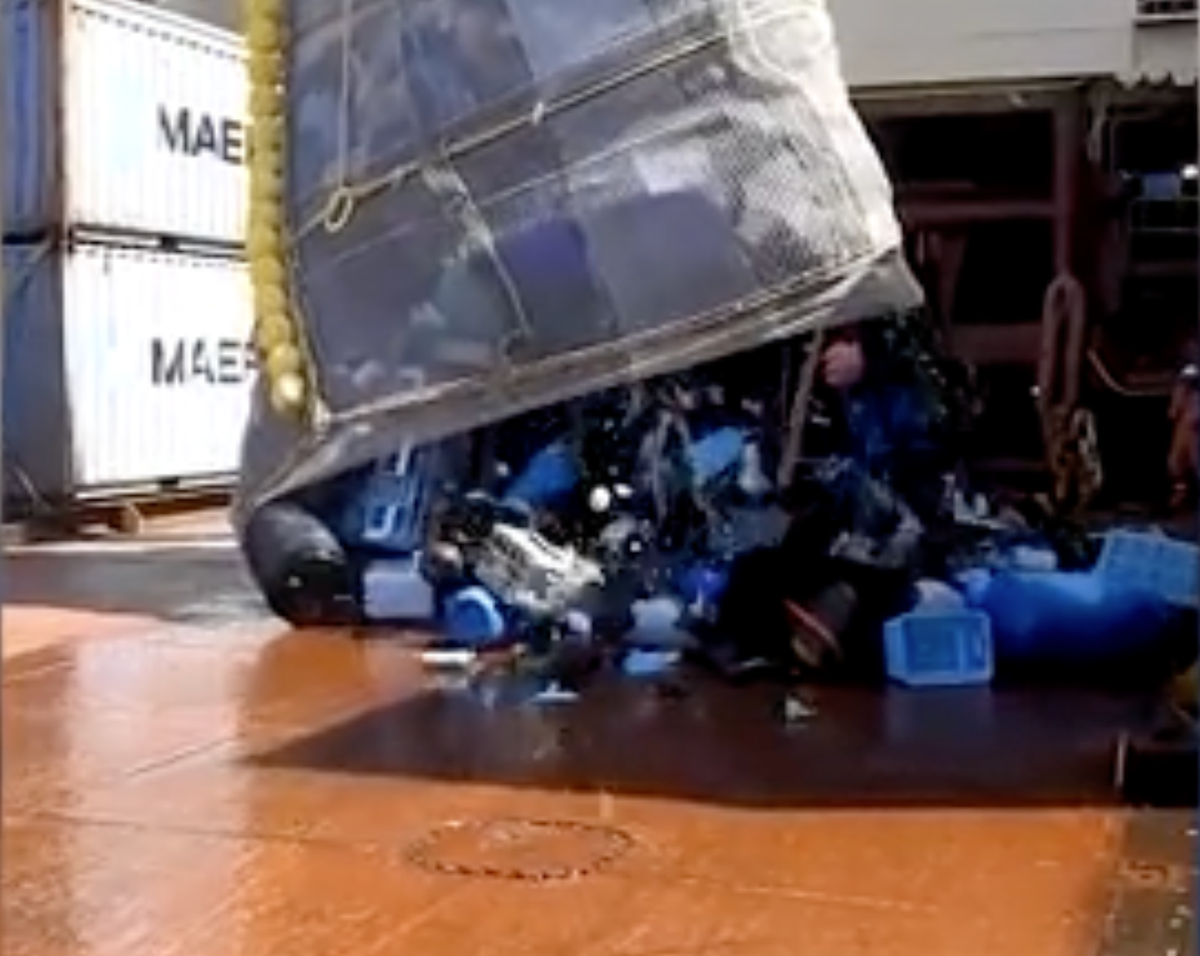
A non-profit has sent ships to comb the eastern Pacific Ocean for trash — and pulled up a massive haul.
On Tuesday, The Ocean Cleanup, an organisation based in The Netherlands, posted a video of its ship dragging more than 10,000 kilograms (22,000 pounds) of plastic out of the water, dumping heaps of garbage onto the deck.
The trash was collected in a corner of the ocean known as the Great Pacific Garbage Patch, a massive swath of water where trash gathers from all over the world — and a scourge to environmentalists worried about hazards to marine life and plastic pollution.
In the video, barrels, baskets, jugs, buckets and more spill out of the net, as someone on board the ship can be heard yelling “Whoa!”
To gather the trash, The Ocean Cleanup attaches a long net to two ships, which pull it slowly through the ocean in a U-shaped formation and trapping the plastic at the end.
The nets are also open at the bottom, the organisation says, allowing fish to swim free even as the garbage is collected.
Every week or so, the two ships come together and close the net, with one ship collecting the trash from the net, as seen in the video. In total, this system has collected more than 145,000 kg (320,000 lbs), the organisation says.
This recent haul was the largest single collection to date, they add.
Plastic waste has become a global crisis, with trash littering oceans, coastlines and rivers around the world.
In the ocean, this waste can end up being eaten by animals like sea turtles and birds — and the US National Oceanic and Atmospheric Administration (NOAA) estimates that more than 800 species of marine animals have been hurt by trash in the ocean.
This problem is particularly acute in the “garbage patches” like the one in the eastern Pacific. In these spots, ocean currents push everything from ship parts to household waste and tiny flecks of trash known as “microplastics” into gigantic, concentrated vortexes of detritus.
Earlier this year, representatives from 175 countries agreed to create a legally binding treaty at the United Nations to address plastic pollution by the end of 2024.
“High and rapidly increasing levels of plastic pollution represent a serious environmental problem at a global scale, negatively impacting the environmental, social and economic dimensions of sustainable development,” the draft resolution reads.
Progress toward such a landmark agreement is ongoing. Just this week, the non-profit Humane Society International reported that countries at the International Whaling Commission — the international body that governs the whaling industry — unanimously agreed to support negotiations on the plastics treaty.
Source link
